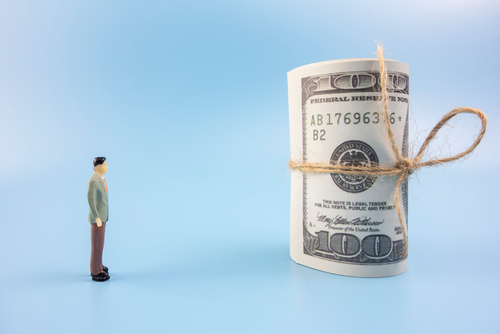Every lender is obligated to charge interest on loans. However, New York State usury law shields some borrowers from interest rates that are too high.
New York’s Usury Law
The definition for usury is the lending of money at an exorbitant interest rate. Specifically, under New York law, the maximum interest rate that you can charge is 16 percent annum. if a lender exceeds this, they may be liable for civil usury; if interest is higher than 25 percent, then it could be considered criminal usury.
Individual Borrower Rules
- NY gives individual borrowers a lot more protection compared to corporations and LLCs.
- Loans under $250,000 to individuals must follow both civil and criminal usury rates.
- Loans between $250,000 and $2,500,000 must only follow criminal rate.
Corporate Borrower Rules
- Corporations and LLCs can be charged more than 16 percent interest.
- Loans to businesses under $2,500,000 are typically exempt from the 16 percent civil usury cap, but are subject to the 25 percent cap.
- Loans to corporations for business purposes that are $100,000 or more that are secured under New York’s Uniform Commercial Code (UCC) are exempt from NY’s criminal usury laws if on the date when the interest is charged or accrued, the interest is not greater than 8 percentage points above the prime rate.
General Rules: All loans above $2,500,000 are exempt from civil and criminal usury laws.
What Are the Remedies for Breaking NY Usury Laws?
When an individual borrower is a usury victim, they can bring a lawsuit to recover anything paid over the 16 percent or 25 percent interest rate. Additionally, individuals can assert usury as an affirmative defense if the lender brings suit against them for the repayment. This differs from a corporate borrower who can only use criminal usury as an affirmative defense, but just like individual borrowers, corporate borrowers can recover what they paid over the 25 percent interest rate.
Also, keep in mind that if a loan is criminally usurious, that loan is considered void, and the lender can lose their principal and interest.
Determining Interest Rates
While NY usury laws determine maximum interest rates, lenders have flexibility to vary interest rates under the limit. Part of the basis for establishing interest rates has to do with the risks of being repaid; borrowers with bad credit, little collateral will likely get a loan with a higher interest rate as compared to borrowers with ample finances. To get around this, some borrowers, (in order to get business loans) give a personal guarantee, which is the individual’s agreement to repay the loan if the business defaults. Typically, a lender can sue the business for repayment. However, if the business doesn’t have any assets, the lender is out of luck. The personal guarantee ensures that the lender can recover from the personal assets of the individual, who made it.
In some instances, a borrower won’t be able to get the business loan without making a personal guarantee. The flip side of this is that the borrower can use the guarantee as leverage to obtain a better interest rate. But personal guarantees should be approached with caution because there’s great risk for losing your business and personal finances.
Talk to an Experienced Lawyer about NY Usury Laws
If you think that you’re a victim of a usurious interest rate, you should act in your best interests and talk to a knowledgeable attorney. Our MOWK Law attorneys are ready to work on your behalf. Get in touch with us today.

